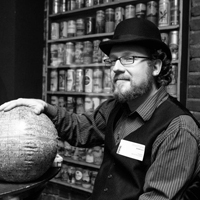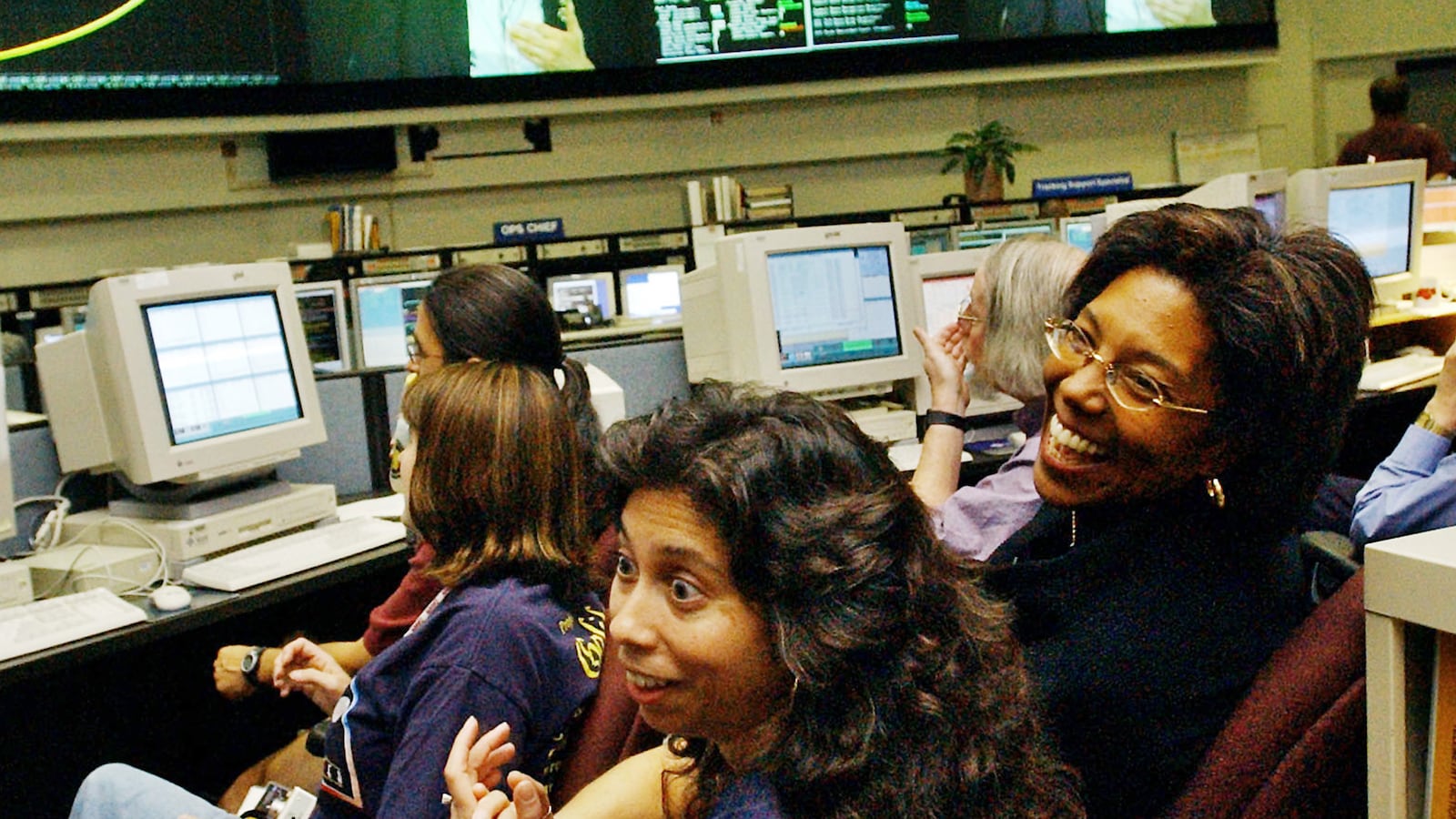Comet 67P/Churyumov—Gerasimenko is a tiny world of ice and rock, just 5 kilometers long. The comet is shaped vaguely like a rubber duck, with steep cliffs and other prominent features that stand much taller in relation to the size of the world. One of remarkable features is a twin set of sharp “horns” on the head of the rubber duck, known now as C. Alexander Gate.
Claudia Alexander served as project scientist for the Rosetta mission, which is orbiting Comet 67P. Until her death in July, she helped lead the United States side of the project, coordinating the various scientific and engineering aspects of the mission. Last week, her colleagues named the C. Alexander Gate in her honor and memory, with her European Space Agency counterpart Matt Taylor making the announcement.
Alexander is the first, and so far only, African-American woman to achieve such a prestigious position on a space mission, and she did it twice: once for the Galileo spacecraft to Jupiter and again for the Rosetta probe to Comet 67P. In fact, she was also the youngest ever appointed when she was picked at age 40 to be the final project scientist for the Galileo mission in 2000. (Science tends to move slowly, so positions of responsibility are often handed out to people relatively late in their careers.)
Space missions are major undertakings. Even a small, relatively inexpensive space probe can involve hundreds of people: scientists, engineers, administrators, and specialists of many kinds. Planning and preparation can take decades before launch, often followed by months or years of travel through space to the probe’s destination. Of course if anything goes wrong, the probe can’t be fixed, and small errors can mean the loss of the entire mission.
Project scientists like Claudia Alexander are the key people in that respect. In her capacity for Rosetta, she needed to use both her science and engineering knowledge to make tough decisions about what science was being done and by which instruments aboard the spacecraft. It’s a difficult and frequently unglamorous job, but one that requires a skilled scientist with practical administrative abilities too—a rare combination.
Alexander was born in Canada in 1959, and her family relocated to Santa Clara, California, during the first rush of Silicon Valley development. Her mother worked for Intel cofounder Gordon Moore of “Moore’s law” fame, and both her parents nudged her hard to go into engineering at the University of California, Berkeley. She didn’t like studying engineering much by her own admission—she wanted to be a journalist instead—but it landed her an internship at the nearby NASA Ames Research Center.
She had always loved planets, so the space research side of Ames appealed to Alexander. In her own words, “I found myself sneaking over to the space building all the time,” and as a result she switched her degree to geophysics, in preparation for a career in planetary science. She continued her studies at University of California, Los Angeles, and the University of Michigan, which enabled her to land a job at NASA’s Jet Propulsion Laboratory (JPL). She spent the remainder of her career at JPL, a place well-suited to her interests in planetary research: Many of NASA’s probes are built and managed at the facility.
Somehow in between working on Galileo and Rosetta, Alexander found the time to write science fiction stories (including an adaptation of the Shakespeare play A Winter’s Tale into a steampunk setting) and several science books for children. Whether she ever slept is something I have not been able to determine.
Alexander is one of just 89 African-American women to earn Ph.D. degrees in physics, astronomy, and related topics in the history of the nation. For comparison, more than 800 Ph.D.s in physics were conferred to United States citizens in the year 2012 alone. Planetary science, like most other fields of science in America, is dominated by white men, and the trend shows no sign of changing.
Given that Alexander’s accomplishments are more than most of us could ever achieve, naming a feature on a comet seems like the least we can do in her honor and memory. Missions like Rosetta and Galileo explore the solar system on behalf of all of us, so it’s past time for scientists to look like all of us in terms of race, gender, ethnicity, and everything else. Then maybe in the future, we’ll remember Alexander as a pioneer and great scientist, not as a rarity and the name of a small feature on an icy world.






